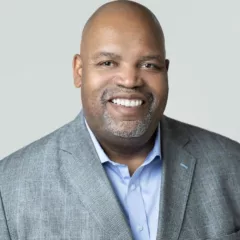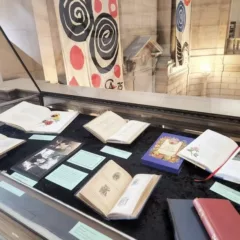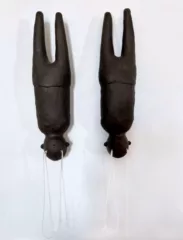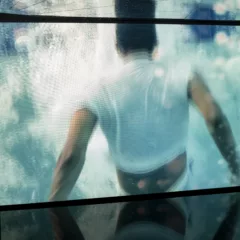by Imani Roach
(ED. NOTE: THIS POST BY IMANI ROACH WAS ORIGINALLY PUBLISHED AUG. 19, 2018)
I can’t remember the last time a documentary made me cry from joy. But the unvarnished voice of Patti Labelle, in the bloom of her Bluebelles years, gliding effortlessly over the opening phrases of “Over the Rainbow” is enough to put anyone in their feelings. In fact, Mr. Soul!, the new film from directors Melissa Haizlip and Samuel D. Pollard about short-lived New York City Public Television variety show Soul!, and its creator Ellis Haizlip, is immediate and affecting at every turn. In addition to undeniable performances by everyone from Nikki Giovanni to Stevie Wonder, Mr. Soul!, which screened at the Blackstar Film Festival earlier this month, features a lineup of interviews that disarm the viewer and push the boundaries of the documentary form. That’s why I jumped at the chance to interview Hans Charles, the cinematographer behind many of Mr. Soul!’s most touching moments. Best known for his work on 13th, Ava Duvernay’s 2016 Oscar-nominated documentary about the legacy of slavery in the modern prison industrial complex, Charles attended this year’s festival attached to an impressive three projects. When we spoke, he was full of enthusiasm about Blackstar and eager to discuss his approach to capturing the humanity of his subjects.
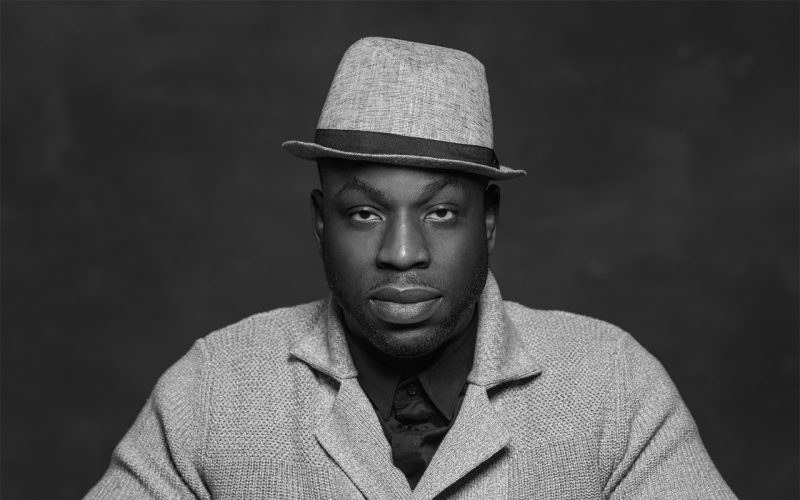
IR: Can you talk about your fresh approach to shooting interviews?
HC: I study a lot of portraiture, and I like to think of interview composition as a form of portraiture. Living in Washington DC, I frequent the National Portrait Gallery on a regular basis, and I always see the exhibitions that come through there. One of my favorite permanent exhibitions is the presidential portraits, because they reveal so much about their subjects. As a cinematographer, I try to draw the audience in so that they pay attention to the content — so that there is visual stimulation as well as contextual stimulation.
I am lucky to have come of age in the digital era, because it has allowed me to think more narratively about my compositions. Documentary is about getting people to talk about a particular subject, and from a practical standpoint, when you’re using celluloid to do that (shooting on 16mm or 35mm) every minute costs money twice. It costs money to expose and to develop the film. So up to a certain point in history, documentaries weren’t allowed to have too much of a style. Once video came along though, you saw the rise of veritee documentary and an expansion of filmmaking through a wider variety of subjects. Digital allows us to expand the number of cameras we have a on a set, and the greater pixel density relative to video also allows me to create these bigger frames. The style that I use for documentary is really a result of the technology
IR: Part of what makes a portrait successful is a degree of comfort in the relationship between the artist and the sitter. Is that something that you try to cultivate when you’re behind the camera?
HC: My work as a photographer specifically deals with the relationship between the artist and the subject. For me one anchor point has been looking at the role of African models, and particularly African female models, in the history of western art. While white models were often prostitutes or women from lower classes, African models were often enslaved women. I’ve been fascinated with changing that power dynamic — fascinated with trying to make photographs that aren’t drenched in the male gaze. It has to start with the model and my relationship to the model.
I’ve been doing a series of photographs of models in their home environments, environments that they are in control of, and hoping to see that dynamic come across. As a cinematographer I try not to let the technical aspects of what I’m doing, the “you must stay here, you must not move,” dominate. It’s more about the comfort of the subject, and I think that translates in the end.
IR: Your interviews with men have a remarkable vulnerability. It’s particularly rare to see black men rendered so tenderly on film. How were you able to achieve that kind of intimacy?
HC: To be honest, the camera also represents the white gaze, and as black people we’ve often had to put up a mask in front of it. One thing that helps is to place the camera further away so that its not as prominent — so subjects can sort of take down their guard and maybe even forget it’s there. I use tools that allow me to do that while still capturing a tight frame. The emotional opening that comes from backing off can create real intimacy in particular moments.
IR: What is your approach to “telling the truth” as a documentarian?
HC: Sometimes when you’re very open about your subjectivity, it becomes objective. It’s like when a narrative film is so culturally-specific that it becomes universal. The key is to never pretend to be objective, because you can’t be.
As a cinematographer, specifically in terms of documentary, the most important thing is to present everybody who sits in front of me with a sense of humanity. And the only control I have over that is how I frame, how I compose, and how I light. When you look at my work, you can tell that i’m really obsessed with looking at people’s faces and finding angles and moving and changing and seeing all their nuances. I sometimes feel that I get a better sense of who somebody is than the director, because while they are answering questions and listening and thinking about the next thing, I get to just sit and see how people respond to things. I see all their little ticks when they are annoyed, and how they pull themselves together when they remember they are in front of the camera.
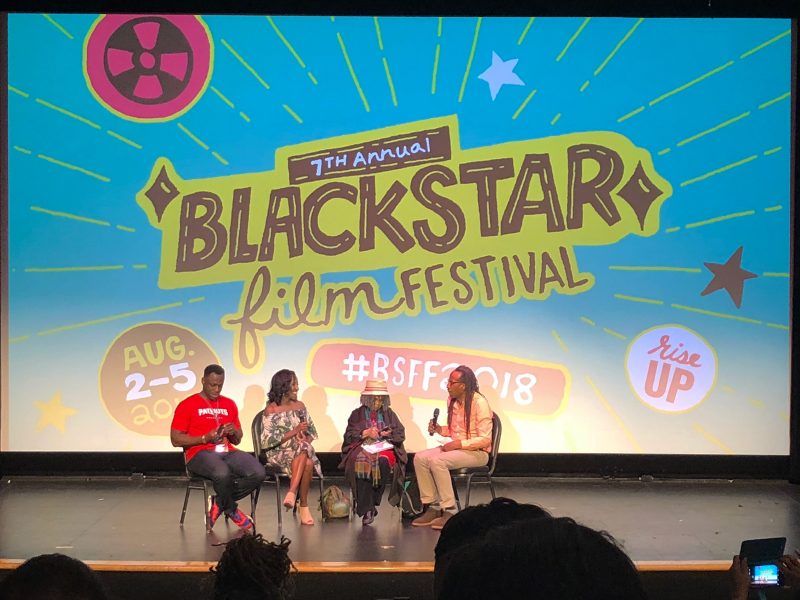
IR: When I arrived today, you were taking part in a group photo of Howard alums involved in the festival. Being a product of Howard University is also something you share with Ellis Haizlip. How has the experience of being educated at a Historically Black College influenced your approach to filmmaking?
HC: I was lucky, in that I went to Morehouse for undergrad and Howard for graduate school. There are lots of struggles to get through Howard’s program, but I would have just been an ordinary cinematographer if I had gone somewhere else. There was something about the cultural anchor point of the professors that really informed how we saw ourselves and how we imagined our legacy. We saw as many diverse films as possible and we never thought of anything we did in terms of image-making as a throwaway; everything was of paramount importance. I think that’s why my work resonates.
IR: I know you’ve also recently started your own production company. What made you want to move into that new role?
HC: It’s not so much a move as an addition because I’m never going to give up being a cinematographer. I have a very particular philosophy about the craft of filmmaking and three quarters of the knowledge I’ve gained as a cinematographer really lends itself to my work as a producer. There is just some practical experience I have that helps me to get things done.
I have a production company called Align Pictures, with my partners Caroline Onikute and Cordielle Street, and we approach producing as a means of helping other filmmakers. So far I’ve signed on two very small documentaries. The analogy I like to use is that marathon runners usually hit a wall at about mile 21. Runners often have someone come in at that point just to pace them to the 26th mile. I like to come in during the post process, when people are emotionally and financially drained. We don’t necessarily have a production fund, but if an artist has money, we can provide almost all the infrastructure they need to cross the finish line. I don’t want to use the word lifeline, but it can make a big difference.
IR: In all the years you’ve been attending Blackstar, how have you seen the festival grow, and what do you think this festival’s role is within the larger film industry?
HC: Honestly, this is one of the most important festivals for independent black filmmakers. Yet I took a couple of Lyft rides this weekend and met people who had no idea that the festival was even here. So for one thing, I want Philadelphians to know that they have this amazing gem, and that they need to attend.
Blackstar is an intimate space where you actually get to know other artists. That makes it a great incubator for budding filmmakers. And I’ve seen a lot of artists grow. I’ve seen their first films here and then they’ve gone on to do great things. Like this year, Terence (Nance) has a television show that premiered here. Ava (Duvernay) started early on with I Will Follow, and then every couple years has been premiering new things here. You can see a pathway, a pipeline between the students who send some of their thesis films to Blackstar and eventually premier their release films here.
I also think this festival gets you emotionally girded for what you need to do out in the world. That’s why, even if they can be big in another space, people come to Blackstar to do the thing that they really want to do. We just saw a block of films in which an executive producer of a major television show was having her directorial debut here.
Blackstar is always on my calendar; I own all the shirts; I love speaking on panels; I love just showing up. Sometimes I’ll come even when I don’t have a single film in the festival. And people are like: “Why are you here?” Sometimes coming without a film is as good as coming with a film because you get to meet amazing aspiring filmmakers and you get to see a great crop of films. It’s a deeply DIY festival, staffed by volunteers, and these are people who have become my dear dear friends. I love Blackstar to death, and I never want to be so successful in my career that I miss this festival.
(ED. NOTE: THIS POST BY IMANI ROACH WAS ORIGINALLY PUBLISHED AUG. 19, 2018)
The Producer’s Forum screening of “MR. SOUL!” will be held Friday, January 25, 2019, 7:00 pm at Scribe Video Center, 3908 Lancaster Ave., Philadelphia, PA 19104; Advance Tickets: $10 General Admission, $8 Students/Seniors, $5 Scribe members


